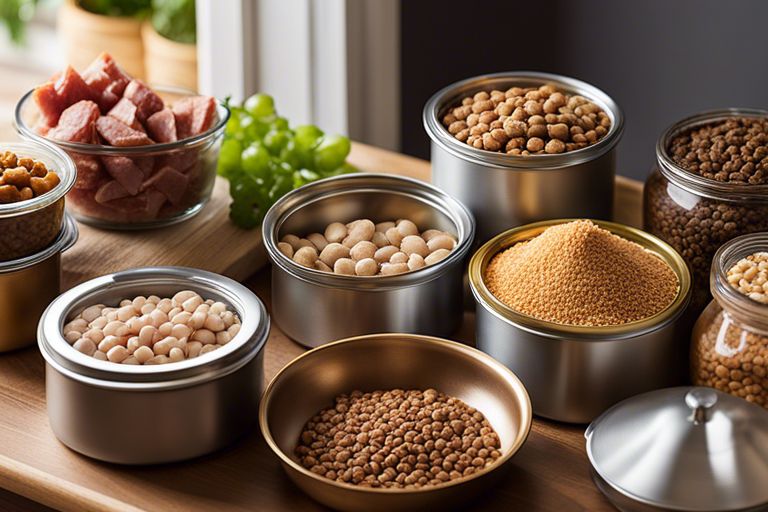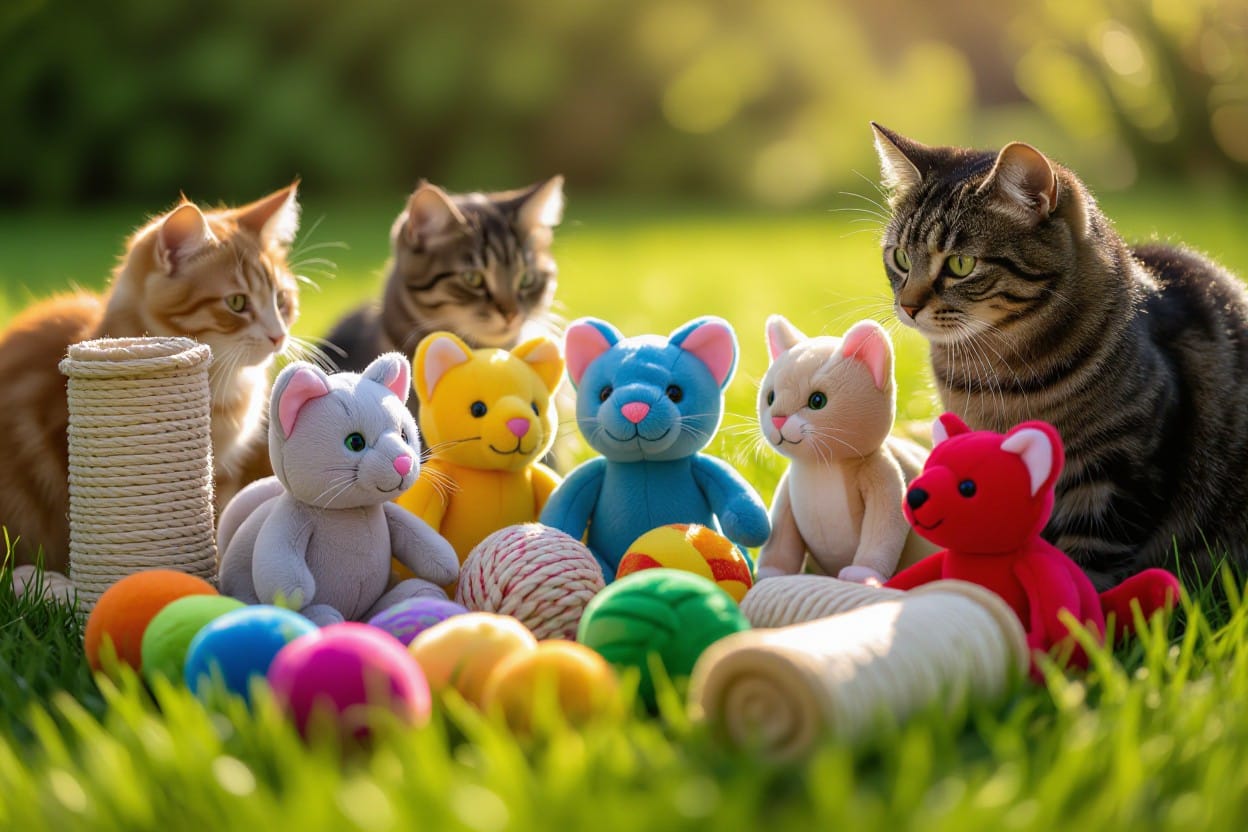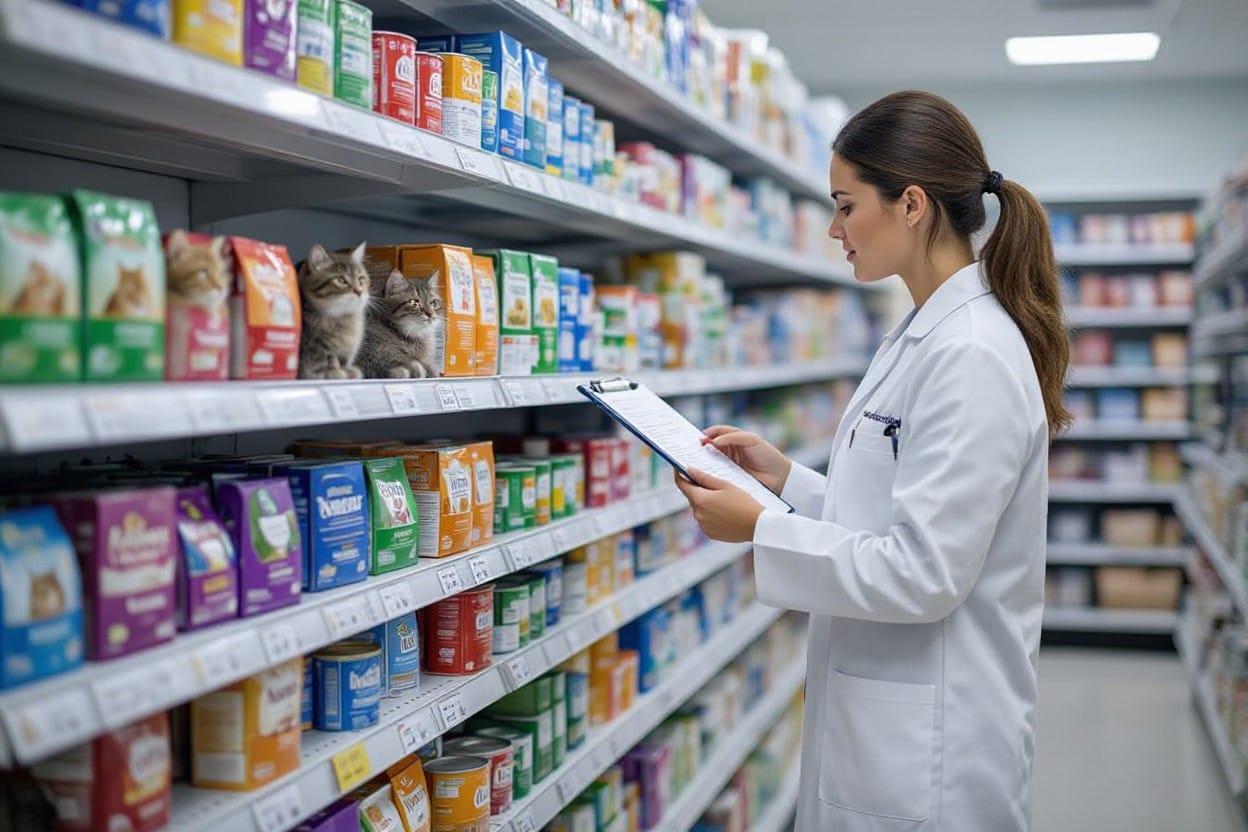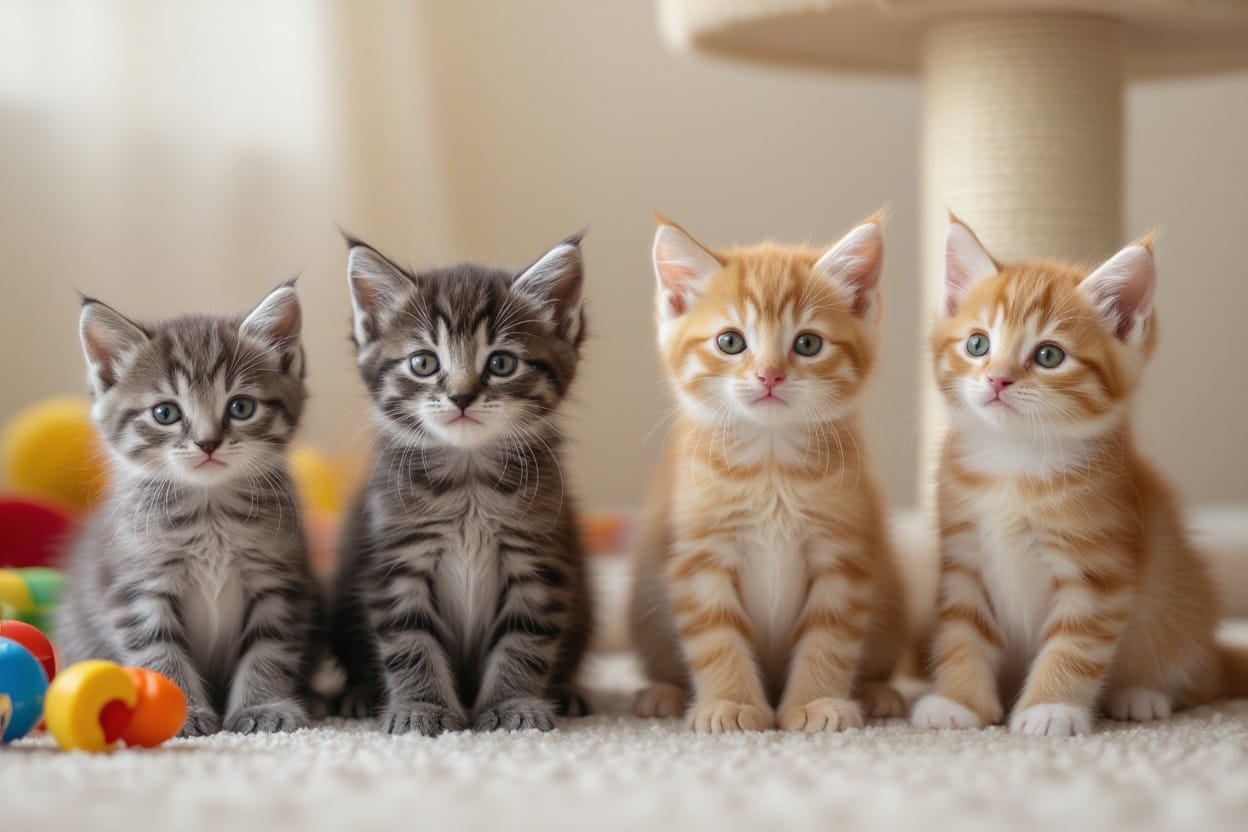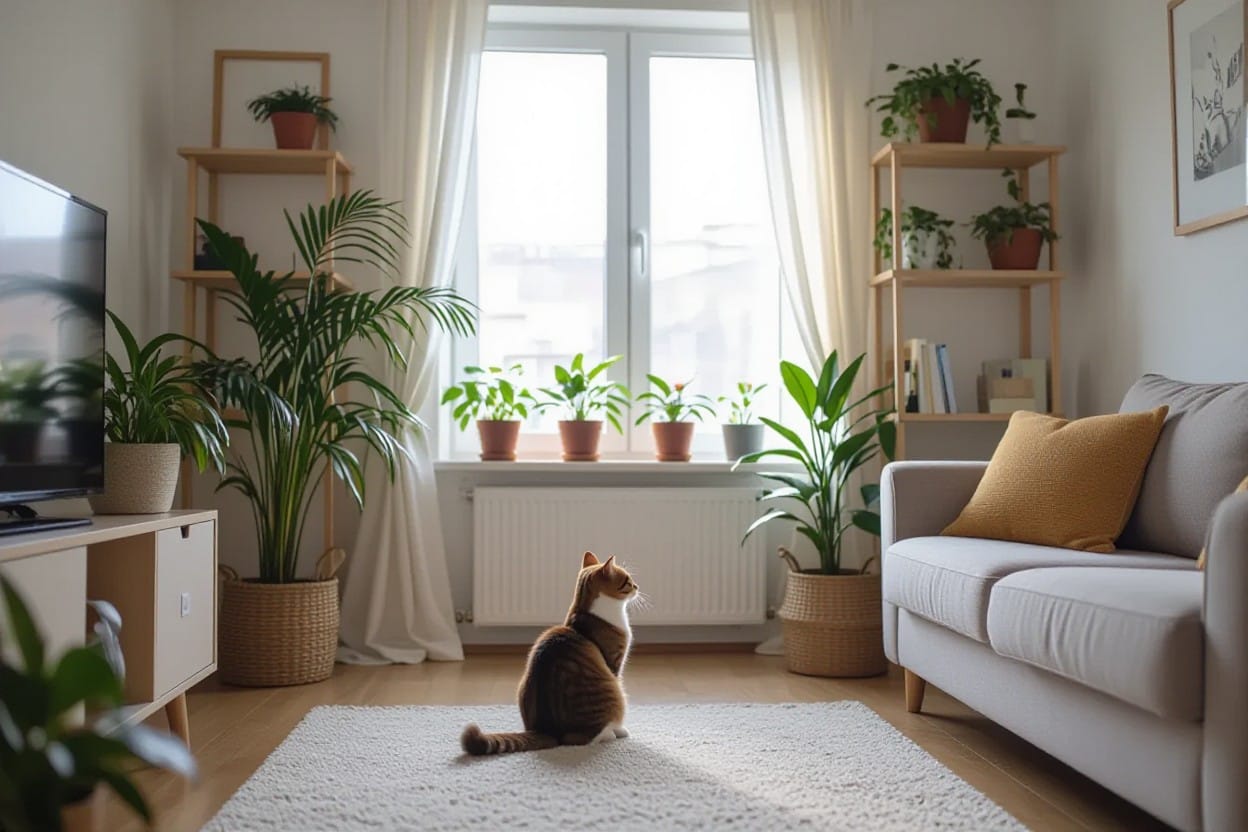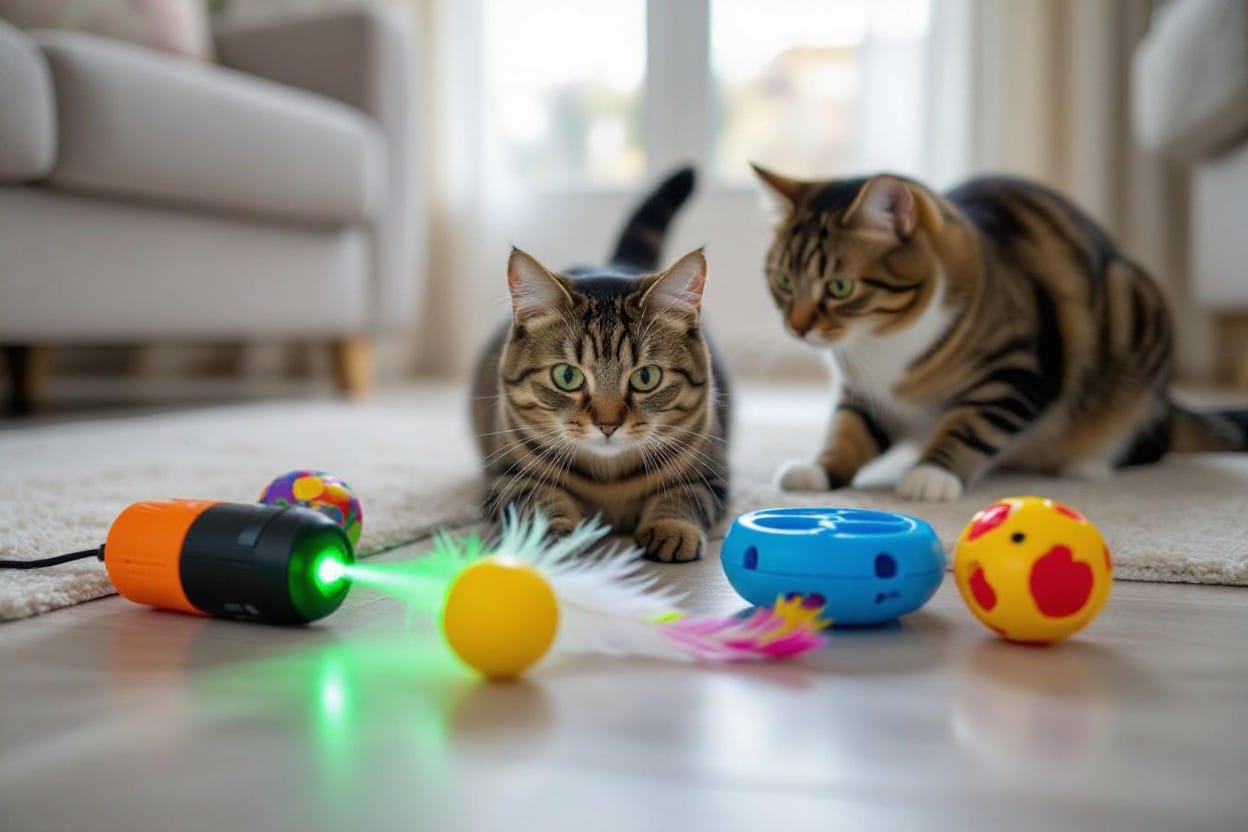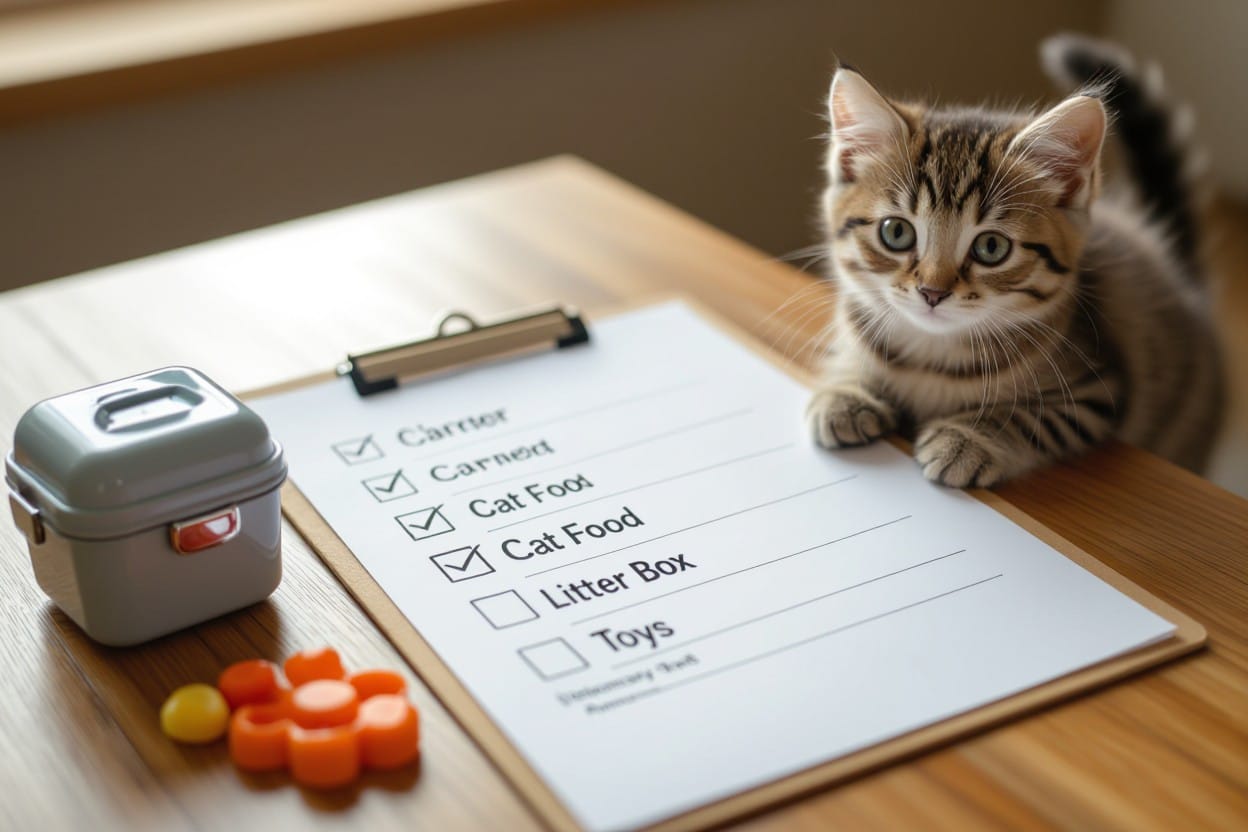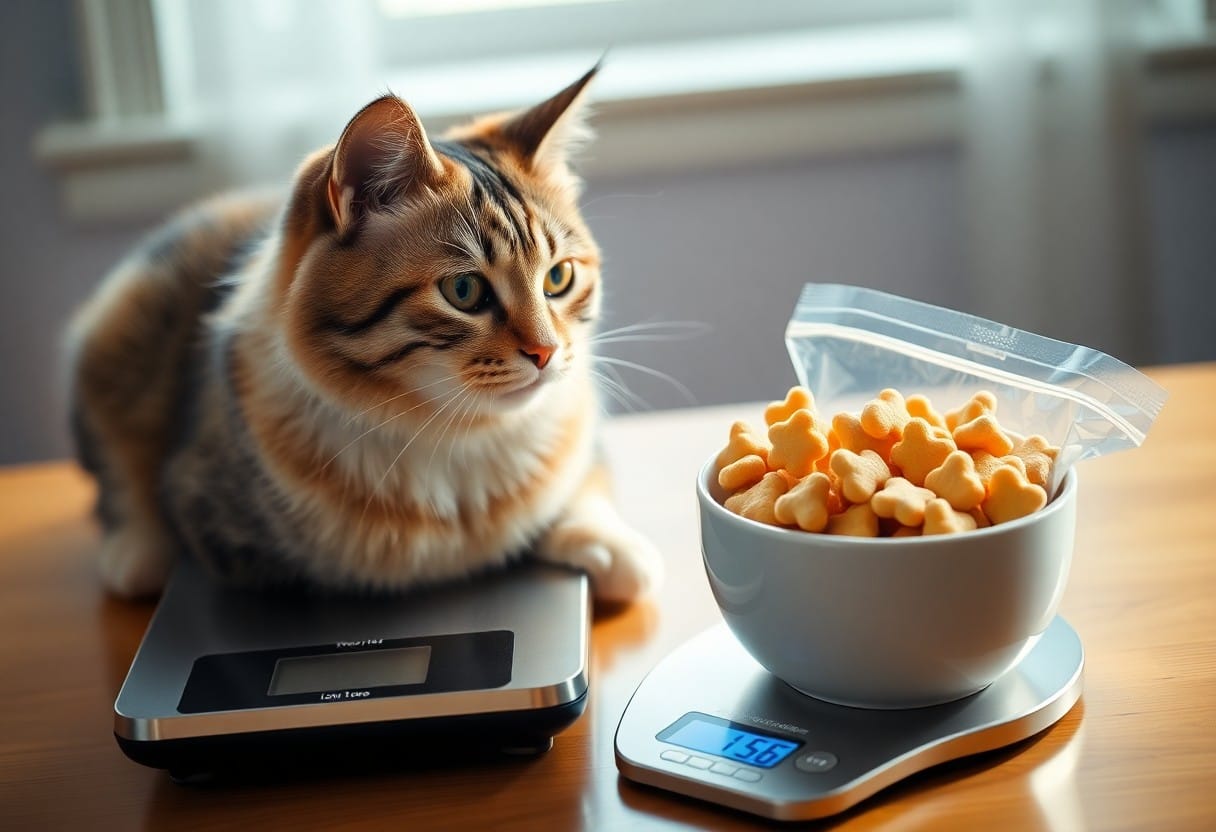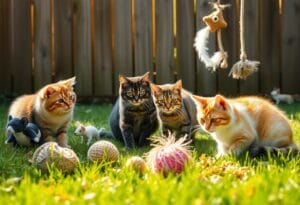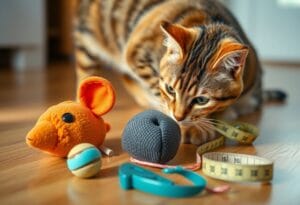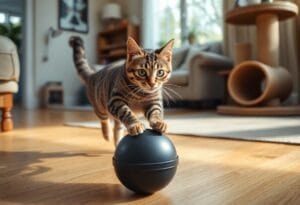In the matter of ensuring the health and well-being of your beloved feline companion, one of the most critical decisions you can make is choosing the right food and diet for them. You are responsible for providing your cat with a nutritionally balanced diet that meets their specific needs, promotes their overall health, and supports their individual lifestyle. With so many options available on the market, it can be overwhelming to navigate through the choices, but with the right information and guidance, you can make an informed decision that will benefit your cat for years to come.
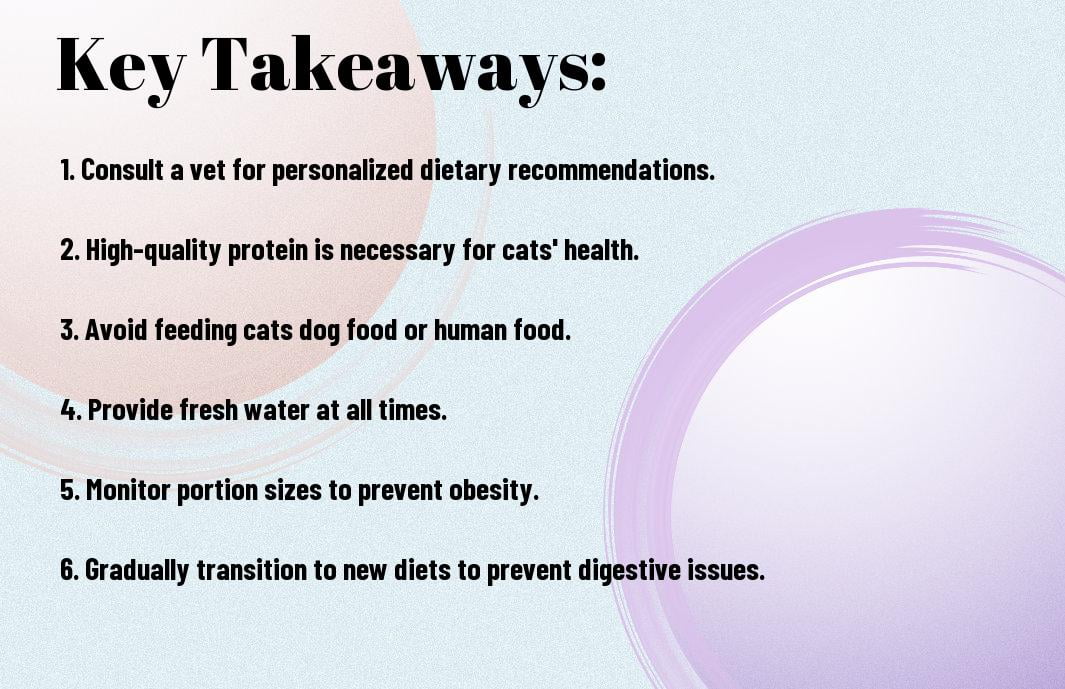
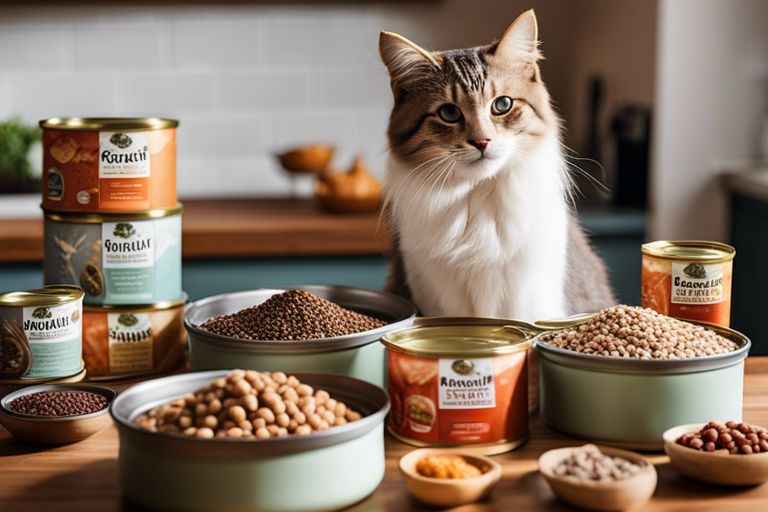
Anatomy and Dietary Requirements of Cats
The carnivorous nature of felines
The anatomy and physiology of cats make them obligate carnivores, meaning that their bodies are designed to primarily thrive on a diet of animal-based proteins. Unlike omnivores, such as humans and dogs, cats have specific dietary requirements that can only be met through meat consumption.
Macronutrients: Proteins, Fats, and Carbohydrates
Any cat diet should consist of adequate levels of proteins, fats, and carbohydrates to meet their nutritional needs. Proteins are imperative for cats as they provide the necessary amino acids for muscle maintenance and growth. Fats are a concentrated source of energy and aid in maintaining healthy skin and coat. Carbohydrates, while not a primary energy source for cats, can still be included in their diet for added energy and fiber.
For instance, a high-quality cat food should contain animal-based proteins like chicken or fish, which are easier for cats to digest compared to plant-based proteins. Additionally, fats from sources like fish oil provide imperative fatty acids such as Omega-3 and Omega-6, which contribute to overall feline health.
Vitamins and minerals imperative for cat health
The optimal health of cats relies on a balanced intake of vitamins and minerals. Cats require specific nutrients like taurine, vitamin A, and arachidonic acid, which are found naturally in animal tissues. These nutrients are crucial for various functions in cats, including vision, heart health, and a healthy immune system.
The carnivorous nature of cats dictates that they obtain imperative vitamins and minerals from animal sources. Therefore, it is important to choose cat food that is formulated to meet these specific feline nutritional needs to ensure their overall well-being.
Evaluating Commercial Cat Foods
Deciphering cat food labels
Keep in mind that interpreting cat food labels can be a daunting task for many pet owners. Look for a statement from the Association of American Feed Control Officials (AAFCO) on the label, indicating that the food is nutritionally complete and balanced for cats. Pay attention to the first few ingredients listed, as they make up the majority of the food. Ingredients like meat, poultry, or fish should be at the top of the list.
Advantages and disadvantages of dry, wet, and raw diets
Any cat owner knows the struggle of choosing between dry, wet, or raw diets for their feline companion. Dry cat food is convenient, cost-effective, and can help with dental health. However, it may not provide enough moisture for some cats and can be high in carbohydrates. Wet cat food is more hydrating and can be beneficial for cats prone to urinary issues, but it can be more expensive and spoil quickly. Raw diets can closely mimic a cat’s natural diet, but they require careful preparation to ensure a balanced nutritional profile and can be risky if not handled properly.
For a definitive answer on which type of diet is best for your cat, consult with your veterinarian. They can assess your cat’s individual needs and health status to provide personalized dietary recommendations. With their guidance, you can make an informed decision that will support your cat’s overall well-being and longevity.
Specific Dietary Considerations for Different Life Stages
Kitten nutrition for growth and development
The nutritional needs of kittens are vastly different from those of adult cats. Kittens require a diet rich in protein and crucial nutrients to support their rapid growth and development. It is crucial to feed them specially formulated kitten food that provides the right balance of ingredients to support their overall health. Look for kitten food that is labeled as complete and balanced for growth.
Adult cat maintenance
Adult cats have different nutritional requirements compared to kittens. Their diet should focus on maintaining their overall health and wellbeing. An adult cat’s diet should include a balance of protein, fats, carbohydrates, vitamins, and minerals. It is crucial to provide them with high-quality cat food that is suitable for their life stage and is labeled as complete and balanced for adult maintenance.
It is important to monitor your adult cat’s weight and adjust their food intake accordingly to prevent obesity or malnourishment. Regular exercise and feeding guidelines recommended by your veterinarian can help keep your adult cat at a healthy weight.
Senior cat dietary adjustments
To meet the changing needs of senior cats, their diet should be adjusted as they age. Older cats may have slower metabolism, decreased muscle mass, and dental issues that can affect their eating habits. Senior cat food is specially formulated to address these concerns, with lower calories, and easy-to-digest proteins. Senior cats may also benefit from supplements such as Omega-3 fatty acids to support joint health and cognitive function.
Regular veterinary check-ups can help in monitoring your senior cat’s health and adjusting their diet as needed to ensure they stay healthy and active in their golden years.
Specialized Diets and Nutritional Management
Weight management and obesity prevention
With the rise in obesity among domestic cats, it is important to address weight management and obesity prevention through proper diet selection. Specialized diets formulated for weight management are designed to help cats lose excess weight or maintain a healthy weight. These diets are typically lower in calories but still provide important nutrients to meet the cat’s nutritional needs. Controlled portions and feeding schedules recommended by your veterinarian are crucial components of an effective weight management plan for your feline friend.
Formulations for specific health issues: Kidney, urinary, and digestive
Diets formulated for specific health issues like kidney disease, urinary problems, and digestive issues are crucial for the well-being of cats with these conditions. These specialized diets are uniquely tailored to support the management of these health issues by providing the right balance of nutrients and ingredients. For example, diets for kidney disease are low in phosphorus and high in quality proteins to reduce the workload on the kidneys. Similarly, urinary health diets aim to regulate the pH of the urine to prevent crystal formation, and digestive health formulas may contain easily digestible ingredients to improve gastrointestinal function.
Management of these health issues through proper nutrition can significantly impact the quality of life and longevity of cats. Consult your veterinarian for guidance on selecting the most suitable specialized diet for your feline friend based on their specific health needs.
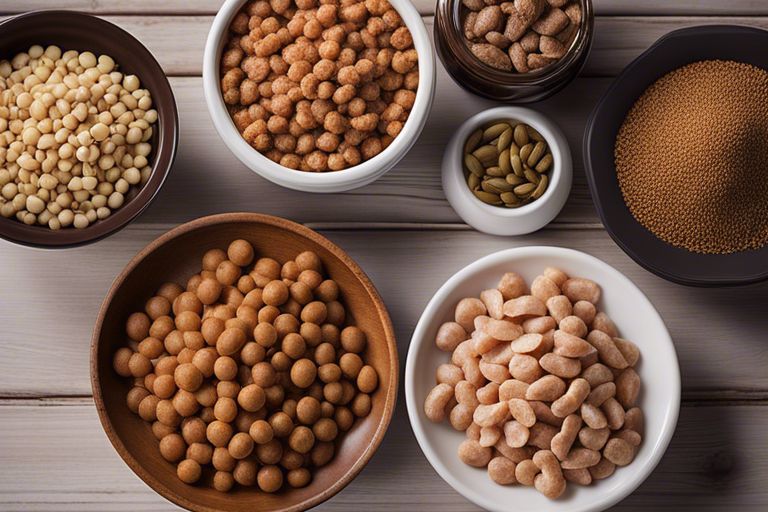
Home-Prepared Diets and Safety
Pros and cons of homemade cat food
For many cat owners, the idea of preparing homemade food for their feline companion can be appealing. However, it’s important to weigh the pros and cons before making this commitment.
| Pros | Cons |
|---|---|
| Fresh, high-quality ingredients | Difficulty in ensuring balanced nutrition |
| Control over ingredients and quality | Time-consuming preparation and planning |
| Potentially fewer additives and preservatives | Risk of bacterial contamination if not handled properly |
| Possible cost savings in the long run | Increased risk of nutrient deficiencies |
| Customizable to meet specific dietary needs | Requires knowledge of feline nutrition |
Best practices and avoiding nutritional deficiencies
Any cat owner considering a homemade diet for their pet should consult with a veterinarian or a feline nutritionist to ensure that the diet is balanced and meets all of their cat’s nutritional needs. It’s imperative to include a variety of protein sources, imperative fatty acids, vitamins, and minerals.
Understanding the nutritional requirements of cats is crucial in formulating a balanced homemade diet. To avoid deficiencies, it’s recommended to use recipes that have been approved by veterinary nutritionists. Additionally, supplements may be necessary to fill in any nutritional gaps that homemade diets may not provide.
Treats and Supplements
Choosing healthy treats for your cat
Many pet owners enjoy treating their feline companions with snacks, but it’s important to choose these treats wisely. When selecting treats for your cat, opt for those that are specifically formulated for felines and are nutritionally balanced. Look for treats that are low in calories and do not contain excessive amounts of fillers, artificial additives, or preservatives. Additionally, consider treats that have added benefits, such as promoting dental health or providing additional nutrients.
The role and risks of dietary supplements
Supplements can play a role in your cat’s diet, but they should not replace a balanced and complete food source. Before adding any dietary supplements to your feline friend’s routine, consult with your veterinarian to ensure they are necessary and safe. While supplements can sometimes address specific health concerns or deficiencies, they can also pose risks if not used correctly. Over-supplementation can lead to imbalances or toxicities, so it’s crucial to follow your vet’s guidance on the type and amount of supplements to give to your cat.
Healthy and balanced nutrition should always be the top priority when it comes to your cat’s diet. Treats and supplements can complement their meals, but they should not be the primary source of nutrients. By choosing high-quality treats and using supplements judiciously under veterinary supervision, you can help support your cat’s overall health and well-being.
Transitioning Foods and Managing Dietary Changes
Once again, it is crucial to understand that drastic dietary changes can upset your cat’s stomach and lead to digestive issues. To prevent this, gradual transitions are key when changing your cat’s food.
How to introduce new food to your cat
For a successful transition, start by mixing a small amount of the new food with the current food your cat is eating. Slowly increase the ratio of new to old food over the course of a week or more. This gradual approach will help your cat adapt to the new food without causing any digestive upsets.
Dealing with finicky eaters
One common challenge cat owners face is dealing with finicky eaters who refuse to eat certain foods. If your cat is reluctant to try a new food, try warming it up slightly or mixing in some broth to enhance the flavor. It is important not to give in to your cat’s demands for unhealthy or unbalanced foods, as this can lead to nutritional deficiencies.
This can be a frustrating process, but it’s important to stay patient and consistent. If your cat is consistently refusing to eat the new food, consult your veterinarian for further advice on alternative options.
Recap on the importance of proper feline nutrition
Transitioning your cat to a new food and managing their dietary changes is crucial for their overall health and well-being. Proper nutrition plays a vital role in ensuring your cat lives a long and healthy life.
Final tips for maintaining a healthy diet for your cat
In the context of feeding your cat a balanced diet, consistency is key. Stick to a regular feeding schedule and avoid free-feeding to prevent overeating. Offer a variety of high-quality foods to ensure your cat receives all the necessary nutrients for optimal health.
- Monitor your cat’s weight and adjust their portions accordingly.
- Consult your veterinarian for advice on the best diet for your cat’s specific needs.
This will help you establish a healthy eating routine that benefits your cat’s overall well-being and longevity.
FAQ
Q: Why is choosing the right food important for my feline friend?
A: Choosing the right food for your cat is crucial for their overall health and well-being. A balanced and nutritious diet can help prevent health issues and ensure your cat lives a long and happy life.
Q: How do I determine the best diet for my cat?
A: Consult with your veterinarian to determine the best diet for your cat based on factors such as age, weight, activity level, and any underlying health conditions. Your vet may recommend a specific type of food or feeding schedule.
Q: What should I look for in cat food labels?
A: When choosing cat food, look for labels that indicate a complete and balanced diet. Check for AAFCO (Association of American Feed Control Officials) certification, which ensures that the food meets nutritional standards for cats.
Q: Are there specific dietary requirements for kittens and senior cats?
A: Yes, kittens require a diet that is higher in protein and calories to support their growth and development. Senior cats may benefit from a diet that is lower in calories and easy to digest to support their aging bodies.
Q: How can I transition my cat to a new diet?
A: To transition your cat to a new diet, mix small amounts of the new food with their current food over a period of 7-10 days. Gradually increase the amount of new food while decreasing the old food until your cat is fully transitioned.
